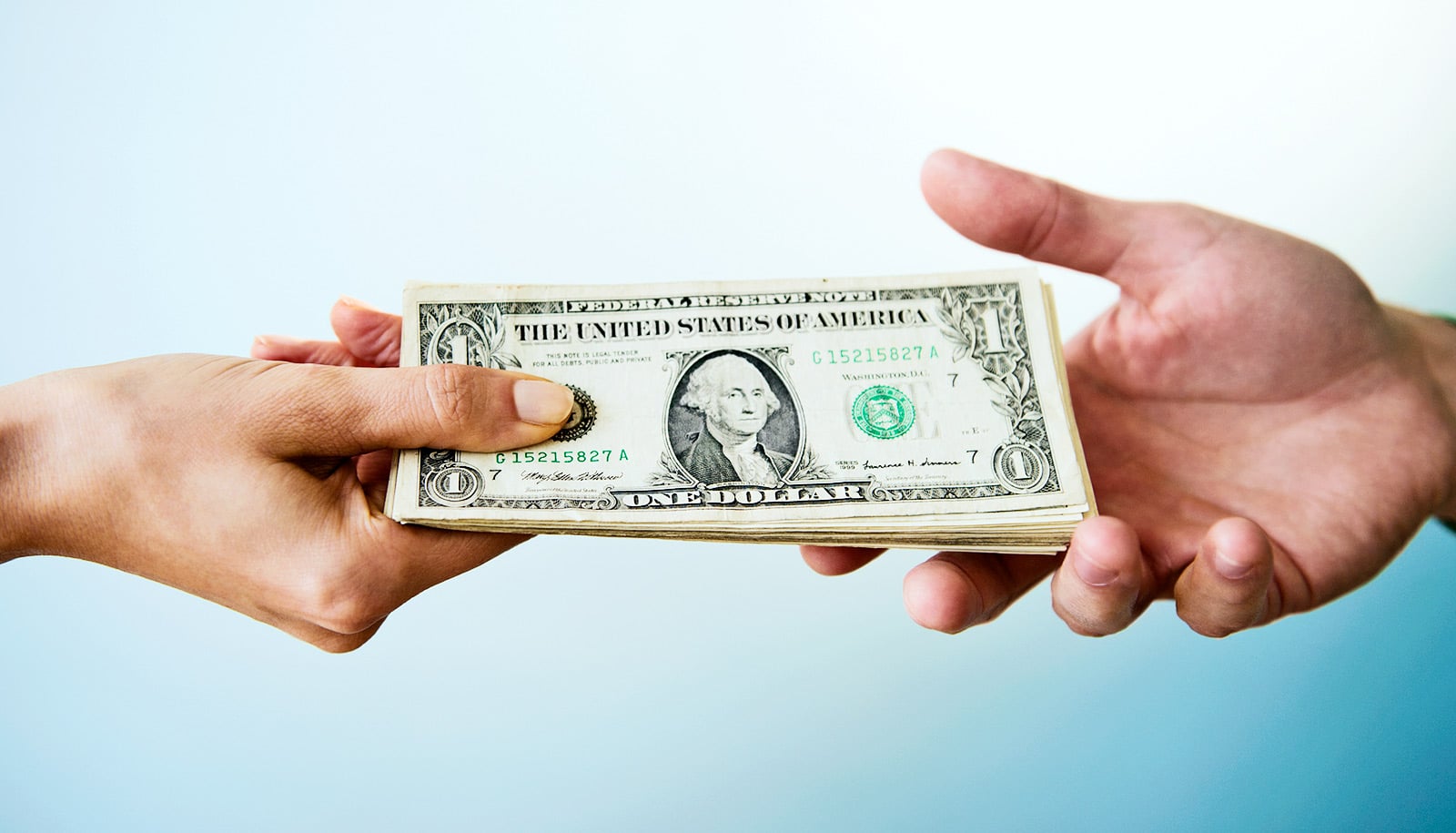Paying cash to people with obesity for losing a specific amount of weight or completing weight-reducing activities works better than many other methods, a new study shows.
Cash beats offering stand-alone free tools, such as weight-loss programs, diet books, and wearable fitness trackers, the researchers report.
The researchers tracked the weight-loss efforts for up to a year of 668 low-income, mostly Hispanic men and women whose average weight to start the trial was 218 pounds. The researchers randomly assigned all participants to receive one of three sets of incentives for six months, including some who received cash payments and those who received none.
Published in the journal JAMA Internal Medicine, the results show that offering study participants cash directly, on average $440 in total, for losing at least 5% of their original body weight (about 10 pounds) was most effective over the short term. Of those offered cash, 49% lost this amount of weight after six months. This number dropped to just 41% after a full year of follow-up.
Similarly, paying other study volunteers an average of $303 over the initial study period to meet weight-loss goals, such as attending at least two weight-loss counseling classes each month, weighing themselves at least three times per week, or exercising for at least 75 minutes per week, was also effective. Some 39% of these study participants lost 5% of their starting weight after six months, and almost 42% lost the minimum amount of weight after 12 months of monitoring.
The researchers offered all study participants a free one-year voucher for the Weight Watchers program, which included classes, counseling, and tips for losing weight. They also provided wearable fitness devices (Fitbits), digital scales, and food journals so that trial volunteers could keep track of their weight during the study and thereafter.
One in five of those who received zero financial incentives and who were only offered the free tools lost the minimum weight after six months. But this grew to almost a third after a year.
“Our study provides firm evidence that offering incentives, especially cash rewards, even if only for six months, helps people of limited means struggling with obesity to lose weight,” says study senior investigator Melanie Jay, an associate professor in the medicine department and the population health department at New York University Langone Health. “However, any kind of incentive to lose weight can work, even if it is just offering the tools to help do so.”
Jay cautions that while the study results showed a short-term benefit, further research is needed to see if these weight losses are maintained for many years and what if any periodic “booster” incentives are needed to sustain reductions in the long term.
Moreover, while incentives tied to actual weight lost performed better in the short term, incentives tied to weight-loss goals evened out after a year. Jay says this suggests that goal-focused financial rewards may last longer than others in the long run.
Further research is needed among more diverse groups in which obesity is a problem for many, she says, not just urban Hispanics living with obesity. Such groups include Black people, Native Americans, and United States military veterans, who have been identified by federal health agencies as disproportionately affected by obesity.
Interventions are needed to address the persistent obesity epidemic in the US. National reports estimate that more than 40% of American adults are obese, defined as having a body mass index, or BMI, above 30, a measure of height and weight.
“New tools are needed beyond encouragement and education to help some people struggling to cope with obesity,” says Jay, who also serves as director of NYU Langone’s Comprehensive Program on Obesity.
“There is no single solution to America’s worsening weight problem. Our national approach has to include multiple approaches, including incentives tailored to the different needs of groups most profoundly impacted by illness and disease tied to obesity, such as type 2 diabetes, heart disease, and some cancers.”
For the study, which took place from November 2017 to May 2021, researchers enlisted volunteers from hospital-based clinics in New York City and Los Angeles, where diet, exercise routine, and weight reductions could be readily tracked through monthly visits. Participants ranged in age from 18 to 70, and all came from neighborhoods with a median income of less than $40,000. For those receiving cash incentives, payments were made monthly as weight was lost or goals were met.
Additional coauthors are from the University of Florida, UCLA, Albert Einstein College of Medicine, Cornell University, and NYU.
The National Institutes of Health supported the work.
Source: NYU


